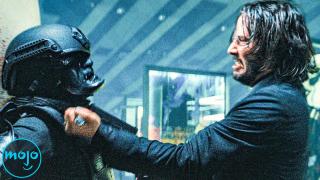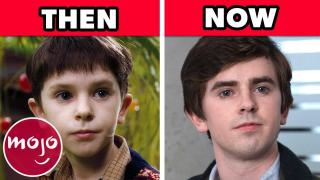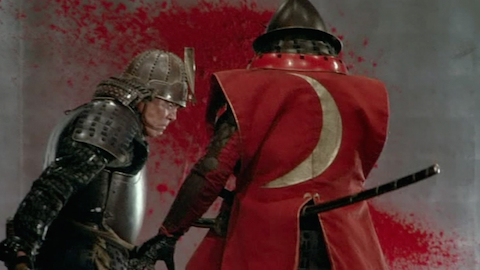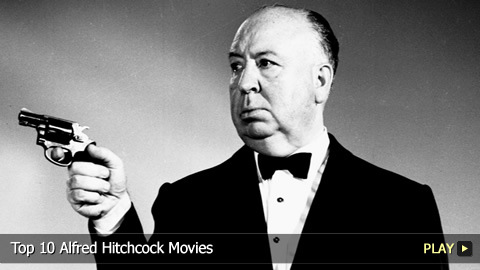Top 10 Classic Directors
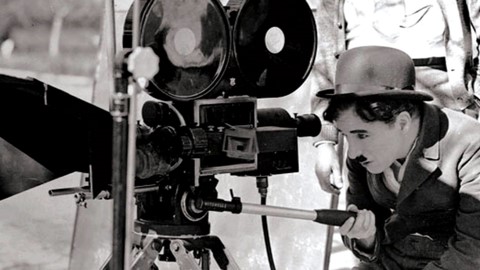
#10: David Lean 1908 – 1991
Top 10 Best David Fincher Movies
Having first worked as a film editor, David Lean had exactly the right tools to get behind the camera by the time he started directing. In fact, he went on to create some of the most beautiful and well regarded on-screen images, most notably in “Lawrence of Arabia” and “Doctor Zhivago.” You could even say his ability to capture landscape was second to none. Lean was also known for bringing Charles Dickens’ novels to life, such as “Great Expectations” and “Oliver Twist.” In 1990, he became one of three non-Americans to honored with AFI’s Lifetime Achievement Award for his work.
#9: Cecil B. DeMille 1881 - 1959
Many know his name thanks to Gloria Swanson’s famous line in “Sunset Boulevard,” which subsequently cemented his legend. But he became famous for telling Bible-inspired tales and large epics; in fact, the filmmaker often found himself directing thousands of extras, and this soon became a talent at which he excelled. DeMille was also known for his larger-than-life personality, which made him a celebrity in his own right. He started the careers of many and was one of the first directors to champion Technicolor.
#8: Elia Kazan 1909 - 2003
Elia Kazan was prominent in both Broadway and Hollywood, a feat few others have accomplished. After pushing the techniques of method acting at the Actors Studio, Kazan helped actors like Marlon Brando and James Dean break into the industry by giving the then-unknowns lead roles in his ‘50s films. The director’s talent was his ability to bring out the best performances in his actors, eventually culminating in 21 Oscar nominations and 9 trophies. He also preferred to make movies that he connected with, as demonstrated by the social issues tackled in “Pinky” and “On the Waterfront.”
#7: Federico Fellini 1920 - 1993
The English language will forever be indebted to this man for the contribution of the word “paparazzi” from “La Dolce Vita.” Of course, that wasn’t the only great thing about the 1960 comedy-drama; it was also a deep and sophisticated take on the decline of society. As a director, Federico Fellini understood movies as moving pictures and used the medium to bring many neorealist and baroque images to his films. He paired his more abstract images with stunning landscapes and risqué plotlines, many revolving around sexual politics and religion. So it’s not surprising that Fellini holds the record for the most Oscar wins in the Best Foreign Language film category.
#6: Frank Capra 1897 - 1991
Frank Capra came from poor beginnings as an Italian immigrant, but soon became the embodiment of the American dream thanks to his award-winning films. Unlike other directors, he was known for improvising many of the scenes on-set rather than relying on a completed script. In the mid-‘30s, he solidified his place in the record books as the first director to have his film sweep the five big awards at the Oscars with “It Happened One Night.” Capra is also remembered annually during Christmas time thanks to “It’s a Wonderful Life” and its status as a preeminent and perennial holiday classic.
#5: John Huston 1906 - 1987
Top 10 John Wick Killstreaks
As the most well-known member of the Huston family dynasty, John Huston had a prolific career that spanned almost fifty years. He wrote almost every film he directed, with many of these screenplays now considered some of the best ever written. Given that he often drew out each scene before filming and spent little time editing after, his style was most certainly unconventional. The Oscar-winning filmmaker directed both his father and daughter during his career and became known for movies that focused on social themes and the emotional quests of their protagonists.
#4: Charlie Chaplin 1889 - 1977
Charlie and the Chocolate Factory Cast: Where Are They Now?
During the silent era, The Tramp proved to be one of the hardest working men in show business, building his production house from scratch and financing his films himself. Creating his own distribution company, United Artists, with fellow directors, Chaplin was also a visionary whose works have proven to be hallmarks of early cinema. Especially notable were his black-and-white silent films, which were often hilarious and heartfelt thanks to his masterful blending of drama and slapstick humor. Chaplin later received an Honorary Academy Award for all his achievements in motion pictures in the early 1970s.
#3: Akira Kurosawa 1910 - 1998
Top 10 Akira Kurosawa Movies
This Japanese filmmaker is considered one of the greatest directors of the 20thcentury. Every detail of his productions was thoughtfully considered, especially the script, which he believed to be the most important aspect. Akira Kurosawa also had a distinctive cinematic eye, shooting many of his subjects from a distance using a long lens, and this created a more natural feel to his films while emphasizing the beauty of the natural landscape. Kurosawa has gone on to influence and inspire many directors, such as Sergio Leone.
#2: Orson Welles 1915 - 1985
While he directed some theatrical productions in the mid-‘30s, Orson Welles first came to prominence after he surprised the world with his radio broadcast of H.G. Wells’ “The War of the Worlds.” He switched to motion pictures in 1941 with “Citizen Kane,” which is largely considered the best film of all time. The mark of his directorial style included the insertion of his personality and vision into every aspect of the film. When it came to his work, Welles was truly a renaissance man: he acted in, wrote and directed many of his features, while also being involved in theater and radio – all of which proved he was a rare talent. Before we unveil our number one pick, here are a few honorable mentions: - Ingmar Bergman 1918 - 2007 - Fritz Lang 1890 - 1976 - John Ford 1894 - 1973 - Billy Wilder 1906 - 2002 - Buster Keaton 1895 - 1966
#1: Alfred Hitchcock 1899 - 1980
Top 10 Alfred Hitchcock Movies
Even more than a director, Alfred Hitchcock was an auteur, meaning he took complete control over every aspect of his productions, which resulted in his signature style. He was aptly named “The Master of Suspense,” since many of his films played with both his characters’ and the viewers’ sense of reality and perception. He also used the camera to break the wall between the audience and his stories, which allowed for a more authentic interaction between the two. Thanks to his groundbreaking filming methods, his mysterious plots and 50+ years in the industry, Hitchcock left a profound impact on cinema and set the stage for everything thereafter. Do you agree with our list? Who’s your favorite classic director? For more can’t miss Top 10s published daily, be sure to subscribe to WatchMojo.com.


 2
2
 0
0
 flagged
flagged

 0
0
 0
0
 report
report

 0
0
 0
0
 report
report


